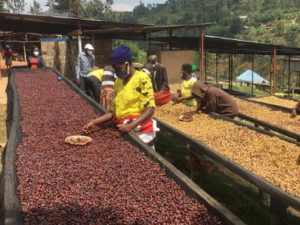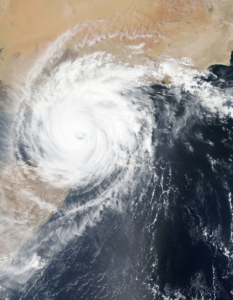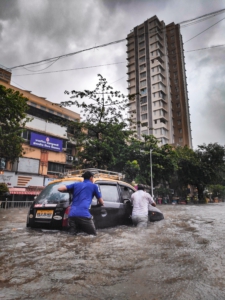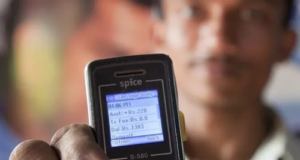Deprecated: Function get_page_by_title is deprecated since version 6.2.0! Use WP_Query instead. in
/opt/bitnami/apps/wordpress/htdocs/wp-includes/functions.php on line
6078
Deprecated: Function get_page_by_title is deprecated since version 6.2.0! Use WP_Query instead. in
/opt/bitnami/apps/wordpress/htdocs/wp-includes/functions.php on line
6078
You are here: Home1 / Blog
https://www.spacefordevelopment.org/wp-content/uploads/2020/09/delightin-dee-l7jWRY3H0x0-unsplash-scaled.jpg
2560
1707
Niamh Barry, Caribou Space
https://www.spacefordevelopment.org/wp-content/uploads/2025/06/Caribou_Logo_Primary_White.svg
Niamh Barry, Caribou Space2020-09-03 17:34:332021-06-05 09:37:21Why Conscious Consumerism can Help Unlock Sustainability for Coffee Farmers
https://www.spacefordevelopment.org/wp-content/uploads/2020/08/Afriqnmun-Lovejoy.png
400
300
Connor McSharry, UK Space Agency
https://www.spacefordevelopment.org/wp-content/uploads/2025/06/Caribou_Logo_Primary_White.svg
Connor McSharry, UK Space Agency2020-08-19 10:00:002021-06-05 09:38:14UK Space Agency’s New Head of Sustainable Development
https://www.spacefordevelopment.org/wp-content/uploads/2020/08/Farmers-harvesting-and-drying.jpg
298
397
Niamh Barry, Caribou Space
https://www.spacefordevelopment.org/wp-content/uploads/2025/06/Caribou_Logo_Primary_White.svg
Niamh Barry, Caribou Space2020-08-03 13:57:572021-06-05 09:38:39IPP ACCORD Project Endorsed by Farmers in Latest Survey Results
https://www.spacefordevelopment.org/wp-content/uploads/2020/06/jakob-owens-x1noB3hon_Q-unsplash-scaled.jpg
1793
2560
Niamh Barry, Caribou Space
https://www.spacefordevelopment.org/wp-content/uploads/2025/06/Caribou_Logo_Primary_White.svg
Niamh Barry, Caribou Space2020-06-21 08:12:392021-06-05 09:38:58World Ocean Day – Sustainable Innovation for our Oceans
https://www.spacefordevelopment.org/wp-content/uploads/2018/07/tree-nature-forest-branch-light-cloud-11191-pxhere.com_.jpg
2592
4608
Niamh Barry, Caribou Space
https://www.spacefordevelopment.org/wp-content/uploads/2025/06/Caribou_Logo_Primary_White.svg
Niamh Barry, Caribou Space2020-06-05 10:39:042021-03-26 20:02:18World Environment Day – Time for Nature
https://www.spacefordevelopment.org/wp-content/uploads/2020/05/nasa-i9w4Uy1pU-s-unsplash-scaled.jpg
2560
1991
Connor McSharry, UK Space Agency
https://www.spacefordevelopment.org/wp-content/uploads/2025/06/Caribou_Logo_Primary_White.svg
Connor McSharry, UK Space Agency2020-05-07 03:43:372021-06-05 09:39:49Remote [Common] Sensing for Climate Resilience
https://www.spacefordevelopment.org/wp-content/uploads/2020/05/chris-montgomery-smgTvepind4-unsplash-scaled.jpg
1920
2560
Connor McSharry, UK Space Agency
https://www.spacefordevelopment.org/wp-content/uploads/2025/06/Caribou_Logo_Primary_White.svg
Connor McSharry, UK Space Agency2020-05-06 05:47:152021-03-26 18:55:35UK Space Agency – Covid-19 Sector Awareness Survey & Fortnightly Webinar
https://www.spacefordevelopment.org/wp-content/uploads/2020/05/adam-niescioruk-Z9arfr0f248-unsplash-scaled.jpg
1920
2560
Connor McSharry, UK Space Agency
https://www.spacefordevelopment.org/wp-content/uploads/2025/06/Caribou_Logo_Primary_White.svg
Connor McSharry, UK Space Agency2020-05-06 05:44:512021-03-26 18:55:24Covid-19 and the International Partnership Programme
https://www.spacefordevelopment.org/wp-content/uploads/2020/02/saikiran-kesari-qVULJ6acwe8-unsplash-scaled.jpg
2560
1920
David Taverner, Caribou Space
https://www.spacefordevelopment.org/wp-content/uploads/2025/06/Caribou_Logo_Primary_White.svg
David Taverner, Caribou Space2020-02-13 11:38:412021-06-05 09:42:02METEOR: Modelling Exposure Through Earth Observation Routines
https://www.spacefordevelopment.org/wp-content/uploads/2020/01/image22-1.png
267
500
Niamh Barry, Caribou Space
https://www.spacefordevelopment.org/wp-content/uploads/2025/06/Caribou_Logo_Primary_White.svg
Niamh Barry, Caribou Space2020-01-21 19:37:032021-06-05 09:42:45Meet Satellite Technology’s Latest Sector: How Space Tech can be used in Financial Services









